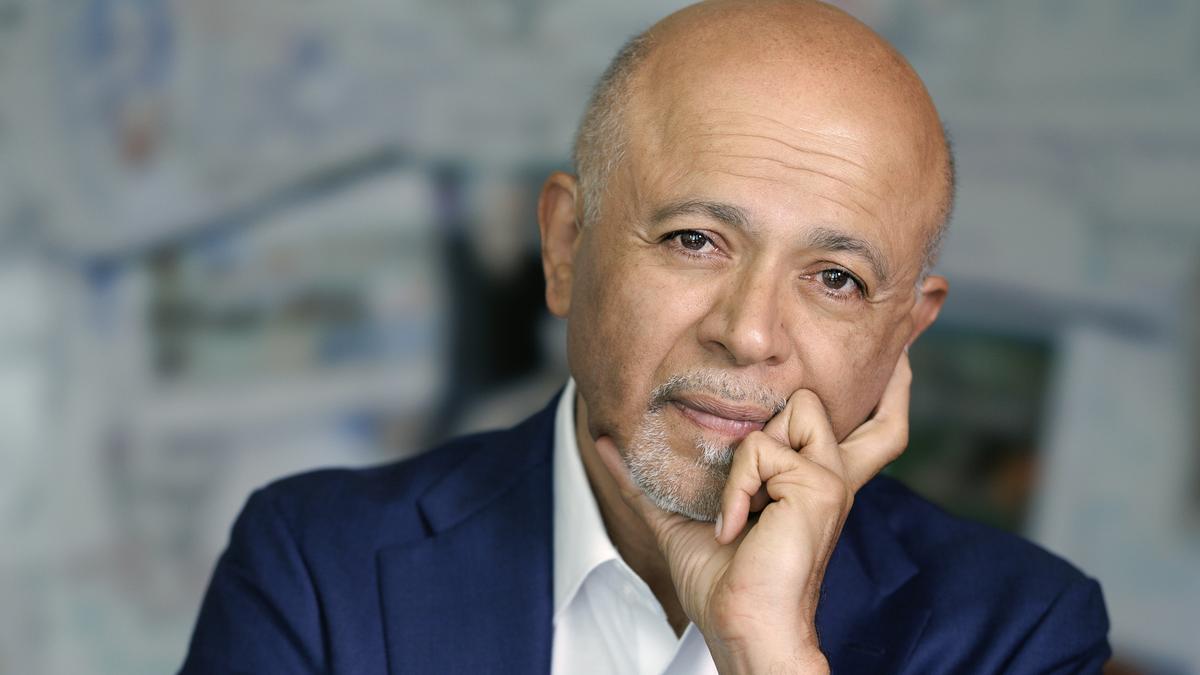
The Hindu Lit for Life | Why geography matters to Abraham Verghese, author of The Covenant of Water
The Hindu
Abraham Verghese's journey from Kerala to Ethiopia to the US shapes his acclaimed books and writing career.
Physician and author Abraham Verghese often says that every change in geography has shaped his destiny. His parents moved from Kerala to Ethiopia, where he was born. Later, as there was civil unrest in Ethiopia, he followed them to the United States, where he practises medicine, teaches, and writes. Verghese’s ancestry and his experiences in the two countries where he has lived have formed the basis of his four critically-acclaimed books.
In his fourth and latest work, The Covenant of Water, published last year, Verghese narrates an epic story spanning three generations in Kerala. Oprah Winfrey has bought the rights to adapt the book info a film. Ahead of The Hindu Lit for Life 2025, which the author will inaugurate in Chennai on January 18, Verghese discusses why he always wanted to write fiction and the difficulty of mining one’s own life for material. Edited excerpts from an email interview:
In the mid-1980s, when I was living in a small town in Tennessee, working as an infectious diseases specialist, I saw more patients with HIV than was predicted for a rural town of 50,000. I realised I had stumbled onto an American paradigm of migration: young men who had left their small towns because they were gay were now returning decades later, having contracted the virus, and having cared for partners who had passed.
At the time, AIDS was considered an urban phenomenon. I wrote a scientific paper describing the paradigm, but I felt it never quite captured the heartache of their journey, or the grief of their parents, or my own grief at seeing this again and again. I became a writer to tell that story — through fiction, or so I thought. But it turns out that non-fiction is much more in demand by publishers than fiction, because non-fiction sells predictably: if something really happened, we all have an inherent interest. So that story became my first book, My Own Country (1994). I thought I was telling the story of the small town and HIV, but inevitably, since I was a character, it was also a memoir.
At the time I was writing the book, I was also living through an experience with one of my medical students, another extraordinary true story. Publishers were anxious for me to write another non-fiction book when I finished the first one, and the story that became The Tennis Partner (1998) seemed an easy way to do so. However, I really always wanted to write fiction, so after two memoirs I have not gone back to non-fiction. It isn’t easy to mine your own life for material.
I think readers understand that memory is unreliable, and that all writing is in a sense a kind of artifice. If you confine yourself not to your memories but to what can be documented to have happened, and only to dialogue exactly what was said... well you have a very dry book, or else it is a newspaper account. Instead, just as when you are sitting with friends and recounting what happened to you, your listeners get your best recollection and they know it comes with all your biases, and with your propensity to exaggerate or else to under-report.
Geography matters greatly. But so do the choices you make at different crossroads in your life. Ultimately, I think life is ironic, and dependent on luck, fate, happenstance, etc. I never intended to be a writer so the fact that we are having this exchange is an example of how life is ironic. I chose infectious diseases as my specialty in medicine before AIDS came along; colleagues in other fields perhaps felt sorry for me. The AIDS experience was the hardest thing I ever did, emotionally and personally; but it made me a writer. So, in short, I think our destinies are shaped by events beyond our control.

The Centre has rejected reports that the definition of the Aravalli hills was changed to permit large-scale mining, citing a Supreme Court-ordered freeze on new leases. It said a court-approved framework will bring over 90% of the Aravalli region under protected areas and strengthen safeguards against illegal mining. The clarification follows controversy over the “100-metre” criterion used to define hills across states.












